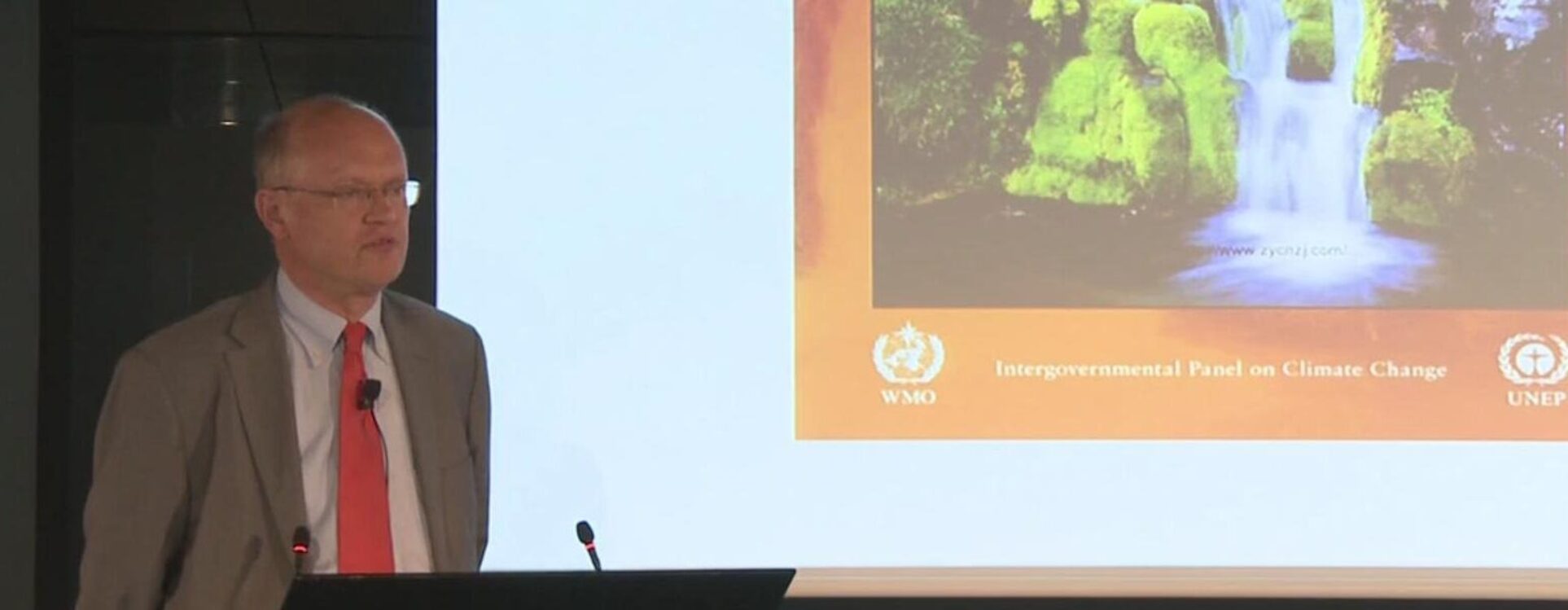The We Are Water Foundation organised the international workshop ‘Social Perceptions of Water and Climate’. Based on the last report from the IPCC, new communicative challenges on how to pass on their conclusions to the general public were discussed
Coinciding with theWorld Climate Day, which is celebrated every 26th March, the We Are Water Foundation shares the conclusions of the workshop Social Perceptions of Water and Climate that took place on the 19th and 20th March at the Roca Barcelona Gallery. This meeting, which gathered renowned meteorologists from around the world, was organised in conjunction with the IABM (International Association of Broadcast Meteorology) and with Tomàs Molina, meteorologist, journalist and member of the IABM in Spain, as the content director.
Speakers included Dr. Jean Pascale Van Ypersele, Vice-Chair of the IPCC, who dealt with the news on the report AR5 IPCC; Michael Williams, Head of Communication and Public Affairs of the WMO (World Meteorology Organisation), who spoke about how to spread the news on climate change; and Professor Ernst Rauch, Director of the Corporate Climate Centre of Munich-Re, who talked about climate change from the perspective of numbers. Other participants were Xavier Torras, Director of the We Are Water Foundation, Ana Redondo, External Relations Coordinator of the Vicente Ferrer Foundation; and Antoni Pérez, Programme Manager at Save the Children.
In this regard, the following main conclusions can be highlighted:
Jean Pascale van Ypersele: conclusions of the report AR5 of the IPCC (Intergovernmental Panel on Climate Change)
- The influence of man on the global warming of the planet is clear:
- Changes in sea water level: an increase of aprox. 20 cm in the last century.
- 80% of the glaciers are in retreat.
- Arctic sea ice is in long-term decline.
- More greenhouse gasses mean an increase in temperature and more severe impacts of climate change
- There are opportunities to integrate mitigation, adaptation and other societal objectives:
- Humanity has the means to limit climate change and build a more sustainable and resilient future.
Ernst Rauch: The perspective of numbers
- Loss events related to climate have increased significantly in the last 30 years.
- Increased financial losses can in part be explained by social or economic factors; however, the signal of climate change is evident in some regions.
- Low-income countries suffer especially from natural catastrophes (e.g. Vanuatu recently).
- Climate change will not go away. We in our generation have the responsibility to address this.
Michael Williams: Weather broadcasters as communicators of climate change
- Weather broadcasters communicate important information on certain events.
- Many weather presenters interact with experts in climatology in their own countries to help explain the likely evolution to their peoples.
- Ban Ki-moon, Secretary General of United Nations, and other major figures believe in the value of using weather presenters to communicate climate change information.
Among the participants of this international workshop were: Mónica López, Director of the Meteorology Department at TVE and presenter of EL TIEMPO (The weather) at the News 2 (La 1-TVE), Gerald Fleming, Forecasting Director at Met Éireann (Ireland); Inge Niedek, weather presenter and Head of the Meteorology Department at ZDF, National Television of Germany; Desislava Banova, weather presenter at Nova and Climate Ambassador in Bulgaria; Yoko Komagata, weather presenter at Japan´s television; Mauricio Saldivar, meteorologist and scientific adviser in Argentina, among many others.
The different meteorologists worked in closed sessions to share their experiences individually and with an open debate in the second part. The two topics addressed in the afternoon sessions were: “Water in times of trouble” and “Public awareness on climate change”, respectively.


